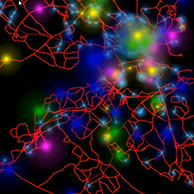Transport and Systems Analysis
We develop tools to help others make better decisions and policies, while at the same time contributing to science.

The subject is interdisciplinary and multidisciplinary. It covers both theory and models for analysis of buildings, transport and communication systems at different geographical scales.
We work mainly in the areas of transport modeling, transport policy and transport economics. Here, our prognosis and analysis tools are used in regional planning, transportation and traffic planning. In the models that we develop and use, account is taken for factors such as travel time, security, availability, accessibility, labor market effects and emissions (including carbon dioxide), and other aspects of social, economic and environmental sustainability.
The models that we develop include a systems perspective, facilitating an analysis from a range of various aspects.
In the area of policy analysis, we study the long-term impact of new roads and railways may, from a systems perspective which includes economics and sustainability. Another example is what happens if we introduce a premium on the electric car? What impact on the fleet and emissions in the short and long term would it cause?
In transport economics our research areas include valuation of travel times, noise, and travel time uncertainty, aspects of sustainability, and regional economic effects of transport.
Examples of projects
- Transport model system for private traffic
- Evaluation of the Stockholm Congestion Charges
- Effects of environmental policy measures on car fleet composition
- Urban morphology - portrayal of how urban environments are perceived by travelers
- Development of methods for socio-economic assessments